
The Lasker Foundation and the National Institutes of Health have joined together in an innovative partnership to nurture the next generation of clinician-researchers.
The Lasker Clinical Research Scholars program is an NIH-funded initiative that supports early-career medical researchers and helps bridge the widening gap between cutting-edge research and improved patient care. This unique program provides scholars with five to seven years of support as independent investigators in the NIH Intramural Research Program, followed by the opportunity for additional years of financial support, either at the NIH or at an extramural research institution.
Meet the Scholars
2024
Andrea Lisco, National Institute of Allergy and Infectious Diseases
 Andrea Lisco focuses on delineating the determinants of persistence, regression, or progression of human papillomavirus (HPV)–related diseases. His goal is to improve clinical outcomes in immunocompromised patients with severe diseases related to HPV.
Andrea Lisco focuses on delineating the determinants of persistence, regression, or progression of human papillomavirus (HPV)–related diseases. His goal is to improve clinical outcomes in immunocompromised patients with severe diseases related to HPV.
Lisa J. McReynolds, National Cancer Institute
 Lisa McReynolds studies inherited predisposition to hematopoietic malignancies, combining genomic and epidemiological approaches to understand their causes. Her goal is to identify genes and clinical features that will help clinicians recognize patients with germline genetic predispositions, ultimately to tailor therapies, aid transplant donor selection, and improve genetic counseling.
Lisa McReynolds studies inherited predisposition to hematopoietic malignancies, combining genomic and epidemiological approaches to understand their causes. Her goal is to identify genes and clinical features that will help clinicians recognize patients with germline genetic predispositions, ultimately to tailor therapies, aid transplant donor selection, and improve genetic counseling.
Samira M. Sadowski, National Cancer Institute
 Samira Sadowski studies the biological mechanisms underlying pancreatic neuroendocrine tumors (PNETs). Her goal is to understand the epigenetic regulation of tumor growth and of neuroendocrine cell surface receptors to identify therapeutic targets to treat PNETs.
Samira Sadowski studies the biological mechanisms underlying pancreatic neuroendocrine tumors (PNETs). Her goal is to understand the epigenetic regulation of tumor growth and of neuroendocrine cell surface receptors to identify therapeutic targets to treat PNETs.
Jeffrey R. Strich, National Heart, Lung, and Blood Institute
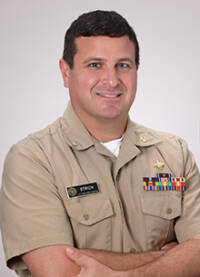 Sepsis is a leading cause of death worldwide. Jeffrey Strich focuses on the role of neutrophil heterogeneity and associated spleen tyrosine kinase expression during bacterial sepsis, with the goal of developing therapeutic targets for bacterial sepsis.
Sepsis is a leading cause of death worldwide. Jeffrey Strich focuses on the role of neutrophil heterogeneity and associated spleen tyrosine kinase expression during bacterial sepsis, with the goal of developing therapeutic targets for bacterial sepsis.
2023
Christopher Grunseich, National Institute of Neurological Disorders and Stroke
 Grunseich works to develop treatments for patients with inherited forms of motor neuron disease. He is studying clinical and molecular tools that can be used to measure disease progression and guide the development of new treatments.
Grunseich works to develop treatments for patients with inherited forms of motor neuron disease. He is studying clinical and molecular tools that can be used to measure disease progression and guide the development of new treatments.
Payal P. Khincha, National Cancer Institute
View website
 Khincha is dedicated to improving the lives and outcomes of individuals and families with inherited cancer predisposition syndromes, particularly Li-Fraumeni Syndrome. Li-Fraumeni Syndrome confers an extremely high lifetime risk of developing multiple primary cancers of different types.
Khincha is dedicated to improving the lives and outcomes of individuals and families with inherited cancer predisposition syndromes, particularly Li-Fraumeni Syndrome. Li-Fraumeni Syndrome confers an extremely high lifetime risk of developing multiple primary cancers of different types.
Rosa Nguyen, National Cancer Institute
View website
 Nguyen aims to develop new cellular and cytokine-based immunotherapies for pediatric solid tumors, such as neuroblastoma, for which outcomes continue to be poor. She conducts translational research and is involved with the clinical implementation of promising new treatments.
Nguyen aims to develop new cellular and cytokine-based immunotherapies for pediatric solid tumors, such as neuroblastoma, for which outcomes continue to be poor. She conducts translational research and is involved with the clinical implementation of promising new treatments.
Ramya Ramaswami, National Cancer Institute
View website
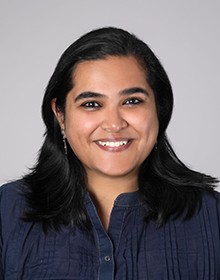 Ramaswami focuses on identifying novel therapeutic options for patients with HIV and cancer. She leads the natural history and treatment study of patients with Kaposi sarcoma herpesvirus-associated multicentric Castleman disease (KSHV-MCD) within the NCI, which includes the largest group of patients treated for this condition within the United States.
Ramaswami focuses on identifying novel therapeutic options for patients with HIV and cancer. She leads the natural history and treatment study of patients with Kaposi sarcoma herpesvirus-associated multicentric Castleman disease (KSHV-MCD) within the NCI, which includes the largest group of patients treated for this condition within the United States.
Nitin Roper, National Cancer Institute
View website
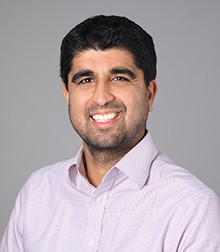 Roper studies the biological mechanisms responsible for neuroendocrine tumors, particularly small cell lung cancer. He aims to understand the relationship between intracellular signaling pathways and immunologic, epigenetic and molecular aspects of neuroendocrine tumors with the goal of translating experimental data to the clinic.
Roper studies the biological mechanisms responsible for neuroendocrine tumors, particularly small cell lung cancer. He aims to understand the relationship between intracellular signaling pathways and immunologic, epigenetic and molecular aspects of neuroendocrine tumors with the goal of translating experimental data to the clinic.
2021
Freddy E. Escorcia, National Cancer Institute
View website
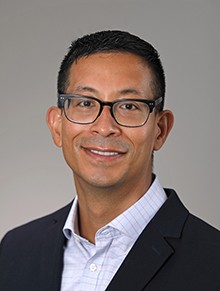 Escorcia is dedicated to improving the diagnosis and treatment for patients with gastrointestinal and hepatobiliary cancers. He is designing, engineering, and testing new tumor-directed radiopharmaceuticals for imaging and therapy that he hopes will help improve the quality of life and survival of patients with these malignancies.
Escorcia is dedicated to improving the diagnosis and treatment for patients with gastrointestinal and hepatobiliary cancers. He is designing, engineering, and testing new tumor-directed radiopharmaceuticals for imaging and therapy that he hopes will help improve the quality of life and survival of patients with these malignancies.
Robert Hufnagel
Currently: Senior Investigator, Center for Integrated Healthcare Research, Kaiser Permanente, Hawaii
Formerly: Lasker Clinical Research Scholar, National Eye Institute
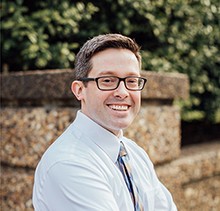 Hufnagel is dedicated to understanding mechanisms of human genome variation that cause blindness in children. He uses genomics, stem cell engineering, and gene editing approaches to establish patient-centered disease models for translational and preclinical studies.
Hufnagel is dedicated to understanding mechanisms of human genome variation that cause blindness in children. He uses genomics, stem cell engineering, and gene editing approaches to establish patient-centered disease models for translational and preclinical studies.
Suchitra Hourigan, National Institute of Allergy and Infectious Diseases
View website
 Hourigan’s research focuses on microbiome interventions to mitigate chronic inflammatory diseases. She leads studies on “vaginal seeding” in babies born by cesarean section, who are at increased risk of inflammatory diseases including obesity and atopy, as well as studies on other microbiome interventions including fecal transplant and early life antibiotics.
Hourigan’s research focuses on microbiome interventions to mitigate chronic inflammatory diseases. She leads studies on “vaginal seeding” in babies born by cesarean section, who are at increased risk of inflammatory diseases including obesity and atopy, as well as studies on other microbiome interventions including fecal transplant and early life antibiotics.
Derek Narendra, National Institute of Neurological Disorders and Stroke
View website
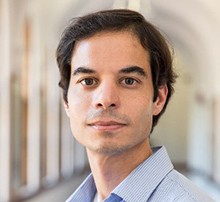 Narendra research focuses on the genetics of movement disorders. He is especially interested in understanding the genetics and molecular pathogenesis of Early Onset Parkinson Disease. His research is expected to enhance the understanding of mitochondrial contributors to Parkinson Disease (PD) pathogenesis and enable novel targeted therapies for both the genetic and sporadic forms of PD.
Narendra research focuses on the genetics of movement disorders. He is especially interested in understanding the genetics and molecular pathogenesis of Early Onset Parkinson Disease. His research is expected to enhance the understanding of mitochondrial contributors to Parkinson Disease (PD) pathogenesis and enable novel targeted therapies for both the genetic and sporadic forms of PD.
Sam Ng, National Cancer Institute
View website
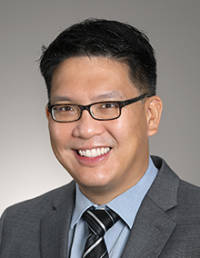 Ng studies the molecular mechanisms that underlie mature T-cell malignancies in order to improve the treatment of T-cell Non-Hodgkin lymphomas. This work includes identifying features of normal or malignant T cells that could be targeted by existing or novel therapies used to treat patients afflicted by these diseases.
Ng studies the molecular mechanisms that underlie mature T-cell malignancies in order to improve the treatment of T-cell Non-Hodgkin lymphomas. This work includes identifying features of normal or malignant T cells that could be targeted by existing or novel therapies used to treat patients afflicted by these diseases.
Marielle Yohe, National Cancer Institute
View website
 Yohe studies the role of aberrant small GTPase signaling in the development of pediatric solid tumors, such as rhabdomyosarcoma and neuroblastoma, and the RASopathies, such as Costello syndrome and cardiofaciocutaneous syndrome. Her research combines biochemical, epigenetic, cellular, and model organism approaches, along with clinical trials.
Yohe studies the role of aberrant small GTPase signaling in the development of pediatric solid tumors, such as rhabdomyosarcoma and neuroblastoma, and the RASopathies, such as Costello syndrome and cardiofaciocutaneous syndrome. Her research combines biochemical, epigenetic, cellular, and model organism approaches, along with clinical trials.
2020
Alison Boyce, National Institute of Dental and Craniofacial Research
View website
 Boyce is working towards a treatment for fibrous dysplasia/McCune-Albright syndrome (FD/MAS), a rare and debilitating skeletal disease that can cause bone fractures, deformity, pain, and loss of ambulation, vision, and hearing. Her research focuses on the role of the RANKL protein, which regulates bone resorption and plays a role in FD pathogenesis.
Boyce is working towards a treatment for fibrous dysplasia/McCune-Albright syndrome (FD/MAS), a rare and debilitating skeletal disease that can cause bone fractures, deformity, pain, and loss of ambulation, vision, and hearing. Her research focuses on the role of the RANKL protein, which regulates bone resorption and plays a role in FD pathogenesis.
Stephanie Chung, National Institute of Diabetes and Digestive and Kidney Diseases
View website
 Chung studies the complex association of biological, social, and environmental factors that contribute to the pathogenesis of type 2 diabetes and cardiometabolic disease. She focuses on diabetes health disparities in youth and young adults, with the goal to develop improved population-specific screening and therapeutic strategies.
Chung studies the complex association of biological, social, and environmental factors that contribute to the pathogenesis of type 2 diabetes and cardiometabolic disease. She focuses on diabetes health disparities in youth and young adults, with the goal to develop improved population-specific screening and therapeutic strategies.
Yogen Kanthi, National Heart, Lung, and Blood Institute
View website
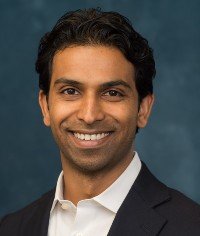 Kanthi works to develop improved treatments for patients with venous thrombosis and peripheral artery disease. His research focuses on the role of innate immune activation in the pathogenesis of the diseases.
Kanthi works to develop improved treatments for patients with venous thrombosis and peripheral artery disease. His research focuses on the role of innate immune activation in the pathogenesis of the diseases.
Jacqueline Mays, National Institute of Dental and Craniofacial Research
View website
 Mays studies the underlying immune processes of chronic graft-versus-host disease that develop in the salivary glands and other tissues of patients who have had hematologic cell transplants. Her research will deepen the understanding of the initial causes of the disease, and how the immune system functions in autoinflammatory oral disease.
Mays studies the underlying immune processes of chronic graft-versus-host disease that develop in the salivary glands and other tissues of patients who have had hematologic cell transplants. Her research will deepen the understanding of the initial causes of the disease, and how the immune system functions in autoinflammatory oral disease.
Ian Myles, National Institute of Allergy and Infectious Diseases
View website
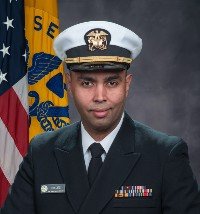 Myles examines how human health is affected by the skin microbiome, the normal microorganisms that live on the skin, with a particular emphasis on eczema (also known as atopic dermatitis, AD). He has identified a species of bacteria from normal, healthy skin that offers protection against the development of AD, and has ongoing clinical trials to determine whether these bacteria can function as an effective topical treatment.
Myles examines how human health is affected by the skin microbiome, the normal microorganisms that live on the skin, with a particular emphasis on eczema (also known as atopic dermatitis, AD). He has identified a species of bacteria from normal, healthy skin that offers protection against the development of AD, and has ongoing clinical trials to determine whether these bacteria can function as an effective topical treatment.
2019
Sean Agbor-Enoh, National Heart, Lung, and Blood Institute
View website
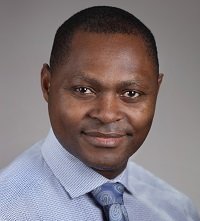 Agbor-Enoh works to improve the survival of lung transplant patients. He is developing methods for the improved detection and treatment of antibody-mediated rejection, a major cause of early death following transplantation.
Agbor-Enoh works to improve the survival of lung transplant patients. He is developing methods for the improved detection and treatment of antibody-mediated rejection, a major cause of early death following transplantation.
Joanna Klubo-Gwiezdzinska, The National Institute of Diabetes and Digestive and Kidney Diseases
View website
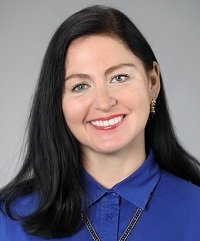 Klubo-Gwiezdzinska focuses on clinical and translational studies finding optimal options for the diagnosis and treatment of thyroid nodules and thyroid cancer. Her work includes identification of genetic background of thyroid tumors, novel molecular targets for therapy of thyroid cancer and a comprehensive analysis of a cross-talk between cancer signaling pathways and metabolism.
Klubo-Gwiezdzinska focuses on clinical and translational studies finding optimal options for the diagnosis and treatment of thyroid nodules and thyroid cancer. Her work includes identification of genetic background of thyroid tumors, novel molecular targets for therapy of thyroid cancer and a comprehensive analysis of a cross-talk between cancer signaling pathways and metabolism.
Paule Joseph, National Institute of Nursing Research and National Institute on Alcohol Abuse and Alcoholism
View website
 Joseph conducts studies to improve the diagnosis, prevention, and management of chemosensory disorders and symptoms. She focuses on understanding the role of sensory science in metabolic disorders such as obesity and diabetes, as well as their interplay with alcohol and substance use disorders.
Joseph conducts studies to improve the diagnosis, prevention, and management of chemosensory disorders and symptoms. She focuses on understanding the role of sensory science in metabolic disorders such as obesity and diabetes, as well as their interplay with alcohol and substance use disorders.
Nirali Shah, National Cancer Institute
View website
 Shah is developing therapies to treat high-risk hematologic malignancies in children, adolescents, and young adults. Her research focuses on chimeric antigen receptor (CAR) T-cell based strategies and other antibody based therapies.
Shah is developing therapies to treat high-risk hematologic malignancies in children, adolescents, and young adults. Her research focuses on chimeric antigen receptor (CAR) T-cell based strategies and other antibody based therapies.
David Takeda, National Cancer Institute
View website
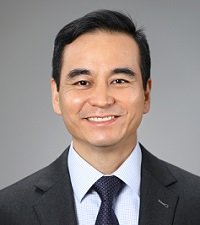 Takeda uses functional genomic approaches to advance our understanding of prostate cancer, in order to provide new insights into potential therapies.
Takeda uses functional genomic approaches to advance our understanding of prostate cancer, in order to provide new insights into potential therapies.
2018
Catherine Ann Cukras
Currently: Senior Medical Director, Roche Pharmaceutical Ophthalmology
Formerly: Lasker Clinical Research Scholar, Division of Epidemiology and Clinical Applications, Clinical Trials Branch, National Eye Institute
 Cukras conducts clinical research in retinal degenerative diseases. The retina is uniquely positioned for advancement in therapeutic intervention for disease. Cukras uses multidisciplinary approaches to understand the patterns of photoreceptor dysfunction and degeneration and to design and implement interventional clinical trials.
Cukras conducts clinical research in retinal degenerative diseases. The retina is uniquely positioned for advancement in therapeutic intervention for disease. Cukras uses multidisciplinary approaches to understand the patterns of photoreceptor dysfunction and degeneration and to design and implement interventional clinical trials.
John P Dekker, Senior Investigator and Chief, Bacterial Pathogenesis and Antimicrobial Resistance Unit, Laboratory of Clinical Immunology and Microbiology, National Institute of Allergy and Infectious Diseases; Director, Genomics Section, Microbiology Service, Department of Laboratory Medicine, NIH Clinical Center
View website
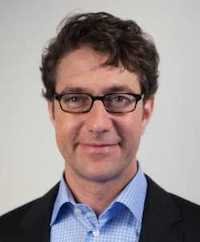 Dekker studies the evolution of bacterial pathogens, host-pathogen interactions, and mechanisms of antibiotic resistance in these organisms. His laboratory uses a variety of computational biology approaches, including genomic sequencing, transcriptional profiling, proteomic studies with mass spectrometry, and in vitro adaptive-evolution experiments.
Dekker studies the evolution of bacterial pathogens, host-pathogen interactions, and mechanisms of antibiotic resistance in these organisms. His laboratory uses a variety of computational biology approaches, including genomic sequencing, transcriptional profiling, proteomic studies with mass spectrometry, and in vitro adaptive-evolution experiments.
Christopher G Kanakry, National Cancer Institute
View website
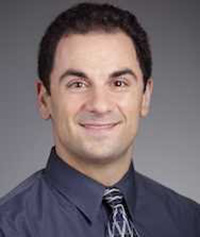 Kanakry conducts clinical research related to allogeneic hematopoietic-cell transplantation. In particular, he is working toward developing and better understanding the use of post-transplantation cyclophosphamide (medication used to modulate the immune system) to prevent graft-versus-host disease (GVHD). His goal is to improve transplantation outcomes for patients.
Kanakry conducts clinical research related to allogeneic hematopoietic-cell transplantation. In particular, he is working toward developing and better understanding the use of post-transplantation cyclophosphamide (medication used to modulate the immune system) to prevent graft-versus-host disease (GVHD). His goal is to improve transplantation outcomes for patients.
Jonathan J Lyons
Currently: Professor of Medicine, in Residence, Division of Rheumatology, Allergy and Immunology, University of California, San Diego
Formerly: Lasker Clinical Research Scholar, National Institute of Allergies and Infectious Diseases
 Lyons uses human immunogenetics to identify how alterations in signaling, protein expression, and metabolism can affect anaphylaxis and myeloproliferative disease. His research helps gain a better understanding of the immunopathogenesis of allergic reactions. Lyons explores novel interventional approaches for the treatment and prevention of severe allergic reactivity and anaphylaxis in people.
Lyons uses human immunogenetics to identify how alterations in signaling, protein expression, and metabolism can affect anaphylaxis and myeloproliferative disease. His research helps gain a better understanding of the immunopathogenesis of allergic reactions. Lyons explores novel interventional approaches for the treatment and prevention of severe allergic reactivity and anaphylaxis in people.
Sonja W Scholz, Senior Investigator and Chief, Neurodegenerative Diseases Research Unit, National Institute of Neurological Disorders and Stroke
View website
 Scholz’s research takes full advantage of the rapid advancements in genomic technologies together with marked progress in computational capabilities to gain insights into the molecular defects underlying neurologic diseases. Her team studies the genetic causes of complex neurodegenerative diseases, including Lewy body dementia, multiple-system atrophy, and related Parkinsonism syndromes. The aim is to use genetic information not just for advancing our understanding of these conditions but also to improve diagnostic accuracy and targeted treatments by incorporating genetic knowledge into routine clinical assessments.
Scholz’s research takes full advantage of the rapid advancements in genomic technologies together with marked progress in computational capabilities to gain insights into the molecular defects underlying neurologic diseases. Her team studies the genetic causes of complex neurodegenerative diseases, including Lewy body dementia, multiple-system atrophy, and related Parkinsonism syndromes. The aim is to use genetic information not just for advancing our understanding of these conditions but also to improve diagnostic accuracy and targeted treatments by incorporating genetic knowledge into routine clinical assessments.
H Nida Sen
Currently: Senior Director/Clinical Lead of Ophthalmology Clinical Development, Janssen Retina
Formerly: Chief of the Unit on Clinical Translational Immunology, Laboratory of Immunology, National Eye Institute
 Sen’s research is aimed at developing outcomes measures, biomarkers, and targeted therapies for the treatment of uveitis, an immune-mediated eye disease, and improving our understanding of the pathways driving it. Uveitis is a multifactorial disease whose etiology remains elusive and whose treatment continues to be a challenge despite recent advances.
Sen’s research is aimed at developing outcomes measures, biomarkers, and targeted therapies for the treatment of uveitis, an immune-mediated eye disease, and improving our understanding of the pathways driving it. Uveitis is a multifactorial disease whose etiology remains elusive and whose treatment continues to be a challenge despite recent advances.
John Frederick Shern, National Cancer Institute
View website
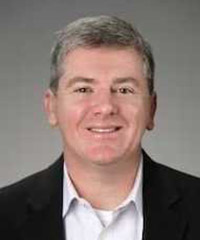 Shern conducts research to define the biology, genetics, and epigenetics of pediatric sarcomas with the goal of developing novel therapies and sequencing assays that can be incorporated into diagnostic and prognostic clinical care. Resolving tumor heterogeneity and genetic mechanisms of tumor resistance is a major goal of his research program as well as the therapeutic targeting of epigenetic vulnerabilities in pediatric sarcomas, namely rhabdomyosarcoma and malignant peripheral nerve–sheath tumors.
Shern conducts research to define the biology, genetics, and epigenetics of pediatric sarcomas with the goal of developing novel therapies and sequencing assays that can be incorporated into diagnostic and prognostic clinical care. Resolving tumor heterogeneity and genetic mechanisms of tumor resistance is a major goal of his research program as well as the therapeutic targeting of epigenetic vulnerabilities in pediatric sarcomas, namely rhabdomyosarcoma and malignant peripheral nerve–sheath tumors.
Jing Wu, National Cancer Institute
View website
 Wu is interested in understanding primary brain tumors by developing preclinical models. The ultimate goal is to translate results into clinical trials to determine predictors and mechanisms of treatment responses or resistance.
Wu is interested in understanding primary brain tumors by developing preclinical models. The ultimate goal is to translate results into clinical trials to determine predictors and mechanisms of treatment responses or resistance.
2016–2017
Christine Alewine, National Cancer Institute
View website
 Alewine is conducting clinical trials to test the effectiveness of a recombinant immunotoxin in combination with standard-of-care chemotherapy in patients who have advanced pancreatic cancer. Recombinant immunotoxins are antibody-based anticancer therapeutics that deliver a potent bacterial toxin to cancer cells; the toxin halts protein synthesis in those cells. Her study may lead to advances in our understanding of whether immunotoxins can be used to treat pancreatic cancer and provide insight into technical aspects of this therapeutic strategy.
Alewine is conducting clinical trials to test the effectiveness of a recombinant immunotoxin in combination with standard-of-care chemotherapy in patients who have advanced pancreatic cancer. Recombinant immunotoxins are antibody-based anticancer therapeutics that deliver a potent bacterial toxin to cancer cells; the toxin halts protein synthesis in those cells. Her study may lead to advances in our understanding of whether immunotoxins can be used to treat pancreatic cancer and provide insight into technical aspects of this therapeutic strategy.
Courtney Fitzhugh, National Heart, Lung, and Blood Institute
View website
 Fitzhugh is seeking to improve—and develop new—treatment options to achieve a cure for sickle-cell disease (SCD). Although matched-sibling bone-marrow transplantation offers the best treatment for people with SCD, only 15 to 20 percent of these patients have a complete sibling match. More than 90 percent have at least a half-match such as a parent, child, or half-matched siblings. Fitzhugh is developing an alternative option that involves such haploidentical donors. Her goal is to develop a widely available, successful half-matched transplant regimen.
Fitzhugh is seeking to improve—and develop new—treatment options to achieve a cure for sickle-cell disease (SCD). Although matched-sibling bone-marrow transplantation offers the best treatment for people with SCD, only 15 to 20 percent of these patients have a complete sibling match. More than 90 percent have at least a half-match such as a parent, child, or half-matched siblings. Fitzhugh is developing an alternative option that involves such haploidentical donors. Her goal is to develop a widely available, successful half-matched transplant regimen.
Jung-Min Lee, Senior Investigator, Women’s Malignancies Branch, Center for Cancer Research, National Cancer Institute
View website
 Lee is conducting clinical and translational research to study the clinical activity and biomarkers of new immune-based DNA injury combination therapies in women who have recurrent ovarian cancer. Her research is focused on cancers that share similar molecular abnormalities: BRCA mutation-associated breast or ovarian cancer, high-grade epithelial ovarian cancer, and triple negative breast cancer (TNBC). Lee’s clinical trial is the first to test the modulation of immune-checkpoint activity by increasing the antigenic microenvironment with active targeted therapy. The project may have a profound impact on the near- and long-term outcomes of women with recurrent ovarian cancer.
Lee is conducting clinical and translational research to study the clinical activity and biomarkers of new immune-based DNA injury combination therapies in women who have recurrent ovarian cancer. Her research is focused on cancers that share similar molecular abnormalities: BRCA mutation-associated breast or ovarian cancer, high-grade epithelial ovarian cancer, and triple negative breast cancer (TNBC). Lee’s clinical trial is the first to test the modulation of immune-checkpoint activity by increasing the antigenic microenvironment with active targeted therapy. The project may have a profound impact on the near- and long-term outcomes of women with recurrent ovarian cancer.
Frank Lin, National Cancer Institute
View website
 Lin is using targeted radionuclide therapy (tRNT) to treat cancer. Unlike conventional external-beam radiation therapy, tRNT can target and treat cancer cells throughout the entire body and has the potential to deliver lethal radiation doses to even micro-metastases. He works with pheochromocytoma/paraganglioma, mesothelioma, and prostate cancer, but tRNT can be used to treat other malignancies, too. Lin hopes to demonstrate that tRNT can be used to treat a variety of malignancies including cancers that are highly resistant to other forms of therapy.
Lin is using targeted radionuclide therapy (tRNT) to treat cancer. Unlike conventional external-beam radiation therapy, tRNT can target and treat cancer cells throughout the entire body and has the potential to deliver lethal radiation doses to even micro-metastases. He works with pheochromocytoma/paraganglioma, mesothelioma, and prostate cancer, but tRNT can be used to treat other malignancies, too. Lin hopes to demonstrate that tRNT can be used to treat a variety of malignancies including cancers that are highly resistant to other forms of therapy.
Anish Thomas, Senior Investigator and Chief of the Developmental Therapeutics Branch, Center for Cancer Research, National Cancer Institute
View website
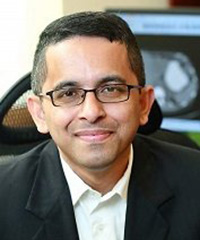 Thomas is a medical oncologist with a focus on clinical and translational research of small-cell lung cancer (SCLC). His goal is to systematically develop more effective therapies for patients with SCLC and similar chemotherapy-refractory tumors by targeting key pathways involved in DNA replication, repair, and chromatin remodeling. His current work builds on more than six years of experience in clinical research of thoracic cancers.
Thomas is a medical oncologist with a focus on clinical and translational research of small-cell lung cancer (SCLC). His goal is to systematically develop more effective therapies for patients with SCLC and similar chemotherapy-refractory tumors by targeting key pathways involved in DNA replication, repair, and chromatin remodeling. His current work builds on more than six years of experience in clinical research of thoracic cancers.
2015
Rebecca Brown, National Institute of Diabetes and Digestive and Kidney Diseases
View website
 Brown works in the Diabetes, Endocrinology, and Obesity Branch of the National Institute of Diabetes and Digestive and Kidney Diseases. Her laboratory studies extreme insulin resistance as well as the role of leptin, the ‘satiety hormone’, on metabolism and weight gain. By studying rare diseases of insulin and leptin regulation, Brown hopes to provide insights and ultimately treatments for common conditions such as obesity and the metabolic syndrome.
Brown works in the Diabetes, Endocrinology, and Obesity Branch of the National Institute of Diabetes and Digestive and Kidney Diseases. Her laboratory studies extreme insulin resistance as well as the role of leptin, the ‘satiety hormone’, on metabolism and weight gain. By studying rare diseases of insulin and leptin regulation, Brown hopes to provide insights and ultimately treatments for common conditions such as obesity and the metabolic syndrome.
Christian Hinrichs
Currently: Chief of the Section of Cancer Immunotherapy and Co-Director of the Cancer Immunology and Metabolism Center of Excellence at the Rutgers Cancer Institute of New Jersey, and Professor of Medicine at the Rutgers Robert Wood Johnson Medical School
Formerly: Senior Investigator, Experimental Transplantation and Immunology Branch, National Cancer Institute-Center for Cancer Research
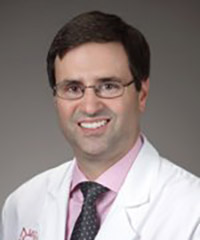 Hinrichs works in the Experimental Transplantation and Immunology Branch of the Center for Cancer Research in the National Cancer Institute. He researches immunotherapy for HPV+ cancers including cervical, oropharyngeal, anal, vulvar, vaginal, and penile malignancies. Hinrichs’s laboratory has discovered personalized T cell and gene therapies for HPV+ cancers. As a Lasker Scholar, he will be developing these treatments in clinical trials, investigating why they work in some patients and not in others, and working to discover additional new treatments.
Hinrichs works in the Experimental Transplantation and Immunology Branch of the Center for Cancer Research in the National Cancer Institute. He researches immunotherapy for HPV+ cancers including cervical, oropharyngeal, anal, vulvar, vaginal, and penile malignancies. Hinrichs’s laboratory has discovered personalized T cell and gene therapies for HPV+ cancers. As a Lasker Scholar, he will be developing these treatments in clinical trials, investigating why they work in some patients and not in others, and working to discover additional new treatments.
Beth Kozel
Currently: Director of the Division of Genetics and Genomic Medicine at Nationwide Children’s Hospital; Director of Constitutional Genomics Translational Research in the Institute of Genomic Medicine of Nationwide Children’s Hospital; and Professor of Pediatrics, The Ohio State University
Formerly: Senior Investigator and Chief of the Laboratory of Vascular and Matrix Genetics, National Heart, Lung, and Blood Institute
 Kozel is a geneticist and a matrix and vascular biologist at the National Heart, Lung, and Blood Institute. She seeks to better understand the factors that influence vascular disease severity in patients with rare connective tissue disorders. The majority of her work is focused on the study of two elastin insufficiency-related diseases: Williams syndrome, a neurodevelopmental condition, and isolated supravalvular aortic stenosis.
Kozel is a geneticist and a matrix and vascular biologist at the National Heart, Lung, and Blood Institute. She seeks to better understand the factors that influence vascular disease severity in patients with rare connective tissue disorders. The majority of her work is focused on the study of two elastin insufficiency-related diseases: Williams syndrome, a neurodevelopmental condition, and isolated supravalvular aortic stenosis.
Armin Raznahan, Senior Investigator and Chief of the Section on Developmental Neurogenomics, Human Genetics Branch, National Institute of Mental Health
View website
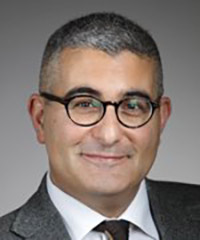 Raznahan leads the Developmental Neurogenomics Unit in the Child Psychiatry Branch of the National Institute of Mental Health. He combines neuroimaging and genomic and systems-biology approaches to map human brain development and genetically defined disorders that increase risk for neuropsychiatric impairment. This work aims to identify sets of genes and brain systems that can account for the emergence of a shared behavioral syndrome (e.g. autism) across distinct genetic disorders.
Raznahan leads the Developmental Neurogenomics Unit in the Child Psychiatry Branch of the National Institute of Mental Health. He combines neuroimaging and genomic and systems-biology approaches to map human brain development and genetically defined disorders that increase risk for neuropsychiatric impairment. This work aims to identify sets of genes and brain systems that can account for the emergence of a shared behavioral syndrome (e.g. autism) across distinct genetic disorders.
Natalie Shaw, National Institute of Environmental Health Sciences
View website
 Shaw conducts research in the Clinical Research Branch at the National Institute of Environmental Health Sciences and is also an adjunct faculty member at the University of North Carolina at Chapel Hill School of Medicine. She is interested in the environmental and genetic control of pubertal development and, specifically, in the effect of sleep disruption and obesity on reproductive hormone secretion. As a Lasker Scholar, Shaw will focus on the genetics behind the timing of pubertal development in adolescent girls.
Shaw conducts research in the Clinical Research Branch at the National Institute of Environmental Health Sciences and is also an adjunct faculty member at the University of North Carolina at Chapel Hill School of Medicine. She is interested in the environmental and genetic control of pubertal development and, specifically, in the effect of sleep disruption and obesity on reproductive hormone secretion. As a Lasker Scholar, Shaw will focus on the genetics behind the timing of pubertal development in adolescent girls.
2014
Hans Ackerman, National Heart, Lung, and Blood Institute
View website
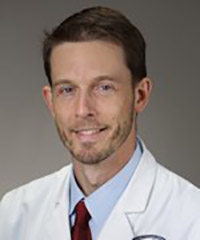 Hans Ackerman is studying sickle-cell disease and malaria, which share an evolutionary link and many of the same disease-causing mechanisms that underlie vascular dysfunction. He is also studying how naturally occurring genetic differences in healthy people change nitric-oxide signaling and vasodilation responses in blood vessel walls.
Hans Ackerman is studying sickle-cell disease and malaria, which share an evolutionary link and many of the same disease-causing mechanisms that underlie vascular dysfunction. He is also studying how naturally occurring genetic differences in healthy people change nitric-oxide signaling and vasodilation responses in blood vessel walls.
Andrea Apolo, Senior Investigator and Chief of the Bladder Cancer Section, Former Genitourinary Malignancies Branch, National Cancer Institute-Center for Cancer Research
View website
 Andrea Apolo is dedicated to improving the treatment and survival of patients with genitourinary tumors. Her research involves developing and designing clinical trials to test novel agents for the treatment of urologic cancers. Her primary research interest is in bladder cancer (urothelial carcinoma) and prostate cancer.
Andrea Apolo is dedicated to improving the treatment and survival of patients with genitourinary tumors. Her research involves developing and designing clinical trials to test novel agents for the treatment of urologic cancers. Her primary research interest is in bladder cancer (urothelial carcinoma) and prostate cancer.
Falk Lohoff, National Institute on Alcohol Abuse and Alcoholism
View website
 Falk Lohoff conducts preclinical and translational clinical studies with a focus on genomics and epigenetics related to the pathophysiology and treatment of alcohol-use disorders and addictions. In his preclinical work, which involves identifying molecular mechanisms involved in addictions, he uses methods such as human population genetics, genome-wide genotyping approaches, next-generation DNA and RNA sequencing, and epigenetic/proteomic profiling.
Falk Lohoff conducts preclinical and translational clinical studies with a focus on genomics and epigenetics related to the pathophysiology and treatment of alcohol-use disorders and addictions. In his preclinical work, which involves identifying molecular mechanisms involved in addictions, he uses methods such as human population genetics, genome-wide genotyping approaches, next-generation DNA and RNA sequencing, and epigenetic/proteomic profiling.
2012
Nehal Mehta
Currently: Clinical Professor of Medicine, George Washington University
Formerly: Senior Investigator and Chief of the Section of Inflammation and Cardiometabolic Diseases, National Heart, Lung, and Blood Institute
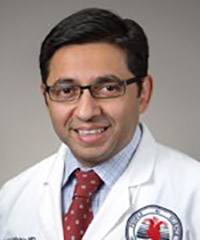 Nehal Mehta was the inaugural scholar in the Lasker Clinical Research Scholars program in 2012. His research focuses on the role of innate immunity and inflammation in the development of cardiovascular and metabolic diseases. Using a transdisciplinary approach that involves genetic epidemiology, translational medicine, and novel cardiovascular imaging approaches, he and his team study how inflammation affects insulin resistance, the development of metabolic syndrome, and lipoprotein dysfunction, all of which are risk factors for atherosclerosis and subsequent cardiovascular disease.
Nehal Mehta was the inaugural scholar in the Lasker Clinical Research Scholars program in 2012. His research focuses on the role of innate immunity and inflammation in the development of cardiovascular and metabolic diseases. Using a transdisciplinary approach that involves genetic epidemiology, translational medicine, and novel cardiovascular imaging approaches, he and his team study how inflammation affects insulin resistance, the development of metabolic syndrome, and lipoprotein dysfunction, all of which are risk factors for atherosclerosis and subsequent cardiovascular disease.
Jessica Gill
Currently: Bloomberg Distinguished Professor, Johns Hopkins School of Nursing and School of Medicine
Formerly: Acting Deputy Director, Senior Investigator, and Chief of Brain Injury Unit, Tissue Injury Branch, National Institute of Nursing Research
 Jessica Gill, who joined the Lasker Scholars program in 2012, is investigating effective ways to identify trauma patients who are at high risk for psychological and neurological deficits. She is developing a novel line of research to reveal the mechanisms underlying different responses to combat trauma and traumatic brain injury and hopes to identify the clinical and biological risks that predict the onset of post-traumatic stress disorder and the neurological compromise that follows a traumatic brain injury. To better understand the risk and resiliency factors, she combines biological methods — including proteomics and epigenetics — with neuronal imaging to follow a unique sample of patients during their immediate recoveries and for years afterwards.
Jessica Gill, who joined the Lasker Scholars program in 2012, is investigating effective ways to identify trauma patients who are at high risk for psychological and neurological deficits. She is developing a novel line of research to reveal the mechanisms underlying different responses to combat trauma and traumatic brain injury and hopes to identify the clinical and biological risks that predict the onset of post-traumatic stress disorder and the neurological compromise that follows a traumatic brain injury. To better understand the risk and resiliency factors, she combines biological methods — including proteomics and epigenetics — with neuronal imaging to follow a unique sample of patients during their immediate recoveries and for years afterwards.
